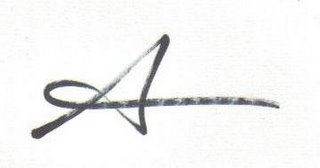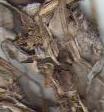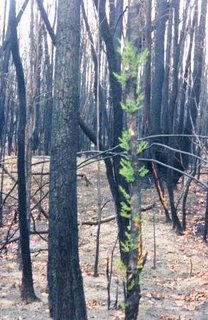
He came first once, then twice a week, exactly at 7:30 pm, in a clean torn shirt topped by a gnarled sweater, his smile eager and shy, his hair still wet from the bath. He always came bearing gifts. A box of apples, their skins still covered with the cataract of bloom, a bag of grapefruit smelling like tonic water and stink bugs, some flame-red persimmons, always picked that day.
His ringed notebook was clutched in an armpit, filled with his former and latest assignments. At first I asked him whether he wanted a mug of tea when he arrived, but I soon stopped because it would sit getting cold, and then he would drink it all at once because I had made it.
He knew how to sign his name, but could not read the letters, so we started with the alphabet. Starting with A, B, C. In printed form, both capitals and lower case, in four alphabets. Century Schoolbook because of its nostalgia to me, but the practical reason is that it's a good serif font for reading any of these complicated squiggles and other impertinences that were part of all letters before type artists knocked the little hooks and noodles off to become the simplified, increasingly used, but harder to read sans serif—William's second alphabet to learn. I chose Gill Sans, a late 1920's font originally based on Edward Johnston's alphabet for the London Underground, but which seduces me with its uniquely elegant and legible proportions. Besides the pleasure of looking at it, I chose this second alphabet because of its resemblance to his third alphabet, the one that his hand had to form by printing. The fourth, of course, was cursive, and he was surprisingly eager to master it, the form he picked out to learn being a classic, 45 degree angled copybook style, generously looped, somewhat fancifully capped.
The alphabet, though, presented the first problem. In order to remember the letters and their peculiar order—why, for instance, are not the sounds grouped—I chose to teach it as a mnemonic. There was only one that I know, and I hesitated, then told him honestly that it was the first long song that I memorized, and I still say it in my head to be able to use that book of mystery and magic, the dictionary.
So we sang it together, and to my delight, he felt the delight that I do in this simple learning aid. He thrilled at the plot. The deliberateness as it begins its march, only to stop abruptly at G. I could feel his sense of suspense. Then we set out again, only to stop again poised but breathless after P. Then with the same sure tread as when set off on our expedition, we approached the end of our journey, which always sounded like a thud of a let-down to me, but didn't to him, because I grew up with the reward of rhyme at the Zee, but here in Australia, Zee is Zed, which doesn't work. Not to me, but to him, it worked "a treat", as he would say. Because it meant that he had seen all the letters and remembered them.
I thought that being a song, it would be easier for him to remember each letter, but I was pleased that he also felt additional pleasure from the arrangements of sounds they make, and the relationships of the letters to each other rather than just abstract symbols in sight and sound. I never discussed it with him, but could see from his joy that he also felt something about the exoticness of it, especially when we came to the part of our journey where we meet what I always have thought of as the rare spotted forest-dweller, the ellemehnopee.
Once he learned what the letters were, we began to practice the sounds they make. I could not find any books suitable, but could remember my mother teaching me how to read after school when I was in the first grade. Sight reading was just coming in, and my mother wanted her children to know how to read, so she ordered some books and taught us by herself.
The diphthongs and paired letters were the key to it. And they are what I started with. I made a large card deck—cards with single letters and cards with combinations of two, three, and four letters.
We started out playing cards. CAT. HAT. CH + A + T. That sort of thing. For it wasn't as if we could have started out with ONE, TWO, THREE. Besides, with his rather old-fashioned Australian dialect (in which cockney plays a large part), "one, two, three" comes out as "one, two, free," which meant that both the "th" and the "f" were building blocks that we stumbled on, though not pyramid-sized.
He also had the problem of "d" and "b", "p" and q".
But they were not insurmountable either. Far from it.
Because this man, a very successful farmer, had left school early because the forest was so much more interesting. I only found out about his illiteracy in a slip-of-the-tongue by his wife, saying something about him wishing that he could read so he could enjoy what I so clearly enjoy. So I offered to try, for it would be a joy for both, and so we began our lessons. He knew words in the way that children learn words now in too many places in the English speaking world—as specific words, by sight.
Soon after William and I began our hopeful experiment, I began tutoring an 11-year-old boy who was unhappy that he couldn't read. I saw his plea in the local paper, and in my naïve enthusiasm, I was eager to help. He had passed every grade, indeed, got average grades at school. When he came for his first lesson, I gave him a children's book about lizards, so I could hear where he had problems. He looked at it and me. He did not know the alphabet. He was not able to read Cat in the Hat. His parents wanted to help but didn't know how this could have happened. I asked to see his report card, and he brought it to me. It explained the problem. Such a good boy. No trouble at all, So quiet. His reading was "good". The comments were written in a semi-literate hand, and the spelling would not have passed any test, except a school system's like this one. I visited the local schools' office and asked what their policy was. Pass everyone. Failing makes children feel bad.
Because Luke had such immediate problems, we scheduled several sessions a week. Easy for him because the teachers have so many days off for preparation, and then there are so many days that the children are out of the classroom doing some sort of visit somewhere, like the park in town or somewhere baby-sitting-on-the-move from the attitude of the teachers; and then there are so many breaks for holidays, he always seemed to be on holiday. His parents said that it didn't matter if he went to school or not. He didn't learn anything. He did know some words. He'd say, "I know that word. We learned that word." But it was like a drizzle of memorized hieroglyphs, with no logic to connect them.
I tried to make it as much fun as possible, and he tried to concentrate as well as he could for a normal boy of eleven with so many fun animals outdoors, and the sun on the paddocks. Sometimes we adjourned to the outdoors and did lessons there, with him spelling out loud and building words in his head, and saying them out loud. He especially took to rhyme, which suited me down to the ground.
Luke was a charming boy, not at all dim-witted as his parents and he were wondering about. We would have gotten somewhere beyond, yes, the mastery of Cat and the Hat, except for natural inclination and pity and laziness. His mother felt sorry for him, and didn't believe me when I said that he had to do the homework I made for him each lesson and settle down for an hour every night, or it would never sink in. The bicycle came out as soon as he came home, and then, at each lesson, we would almost have to start all over again. It reminded me of taking Rosie to her school once a week, and us both rolling our eyes at the other people who were still saying "Sit. Sit. Seeyiiit!" month after month forever.
Finally, I told the parents that if he did not do the homework during the week, I could not put in the enormous effort it was to craft these lessons specially for his interests. His homework, by the way, was with the deck of cards I made for him, in which you got points for making the words and building from them to make new ones, like in Scrabble, so more than one could play. They also now had Junior Scrabble itself, and there were simple rhyming and sentence construction exercises in addition. But the bike was more fun, the mother not wanting to be hard on her child, the father at work, trying hard not to be laid off because of an ailing back. So Mrs. ended the lessons by telling Luke that I "didn't like him any more." I only found this out later, after the family split up. What Luke is doing now, I don't know. But he has been cheated in life, for what boy does want to work, especially when he's come home from school, in those crucial years that he is cooped up in "school" and the school gives him an education not worth a splat of birdshit?
William was different. He was exhausting. He did two hours at night every night, minimum, for the pleasure of it. Because he had never known how to read, and always had to hide it, he remembered EVERYTHING. He didn't need silly mnemonics because he had never had the luxury of anyone teaching him elegant little sayings to help him remember. His memory was built from sheer willpower, then the ability that comes from the practice of flexing the muscle of memory. By the time he came to me, he was a truly exceptional man, with no knowledge of his exceptionality, other than that of being an illiterate—and painfully shy and insecure because of it. He soaked up my lessons, both written and spoken, so well that I had to become extremely pedantic in making absolutely sure of every tiny point that was said to him. I had to LEARN like crazy. He forced me to think, and then to think again, such as no teacher had ever forced me before. His mind picked up exceptions to rules like rose thorns find tender skin.
He adored diphthongs. He thrilled to their different personalities. He was awed by the concept of silent letters. He was amazed by the illogic, or secret codeness of having a word with a whole lot of silent letters huddled together in it.
He loved watching the action of the ink coming out on the paper. And he used black ink. Pencils were below him. He would write a whole page perfectly, and if it had a mistake, he would write it all again, correctly. When we got to sentences, he felt masterful at being able to punctuate them exactly, to put the comma in where it belongs. To indent for a new paragraph. To think about what constitutes a sentence, a phrase, a paragraph, an argument itself. The logic of thought unfolded in his mind as he played with the building blocks of language itself. It wasn't as if he could not think before. But seeing words on paper and knowing what they meant opened up a feeling that then he could explore new thoughts, whole books, something that he had always wanted to do.
We began to use the dictionary, and he found intense joy in first, figuring out how to find the word, and then, seeing the definition. We even went through the symbols for pronunciation, because he hated not knowing what they meant, and when he knew, he always liked to pronounce the word as the suggestions said, sometimes surprising suggestions.
He bought his own dictionary, and told me that he enjoyed spending an evening with it, reading.
We read out loud, and with his mild dyslexia, and his eagerness to please, he had a tendency to run ahead of himself. I had to say, "Slow down. Read that again . . . See. Now you are reading it right. It says 'Not to be used within sixty days.' Not 'To be used within sixty days.' " Because, of course, we were not reading Dick and Jane play with Spot. We were reading poison pamphlets.
For "graduation" he wrote a letter (his handwriting, his composition) to the Mayor, about something that needed to be done in the region. The mayor wrote back immediately, saying that he had been unaware about this issue till this very informative letter, and so the Council had been directed to fix the problem immediately. And the Mayor was telling the truth. He did get onto it immediately and pulled his weight to make sure the Council workers did, too. To my gobstopped surprise, that was the quickest and most successful political request and action taken that I have ever seen. William just thought that that was the treatment us letter-writers are used to.
As for William, another family, another culture. Less beautiful nature outside the jail-of-a-schoolhouse doors, and who knows? Thinking of today's many-lettered elite, William, with his innate abilities, would have had no problems being their peer. But as for them being his peer, I would rate them to him as a red delicious apple is to an honest, crisp, flattened ball of an apple, netted with the rusty veins that only those in the know, mean the mark of the truly delicious: the russetting. The mark that makes your average person throw the apple away.
THE ALPHABET UNCOVERED IN ITS HABITS
At fifty-five, this farmer, grizzle-haired
with eyes pale soup from too many skies
met and discovered the alphabet
and it wrapped its letters around his head
the H and P and O and T
and all the others in their riotous abandon.
Wild they were with their own associations
and he gawped upon, uncovered at last
the marriage of the G and H and the quick
divorce with no hard words, then new
flirtations with other lovers for just a moment
G and U and H and T and then, more fluid
matings! Couplings airy in their flightiness
amoral in their joyousness. Laconic in their
messageness. The bible and a poison pamphlet
same U and G and H and T and just as many
liaisons, even though the one says thee.
His filmy eyes, with their magnifying specs
watched and learned, and memorized the varied
combinations, till he smiled when he saw the T and H
together, and the O and U meant that G and H could make
a foursome, and the nonconformist letters and the noncon-
formist words? Stolid dogma helped him to remember,
like a prayer and a marriage and the shapes that made
his name, the name of fifteen letters, that at fifty-six
he learned.
And now he's fifty-eight and so
his story ends as pear trees grow
when left alone —
without an end.
For him, the letters, to the scarcely seen,
are not cold tools, or means to read
that book. Communication only? No!
Yes: living, leaping, singing, naked friends.
His thinking, ex-espaliered, spreads now
branching, budding, blooming to the yet unread
of lichen-covered borer-riven dogmas down below
as he, the farmer, reaches to prune his fruit trees,
diphthongs, word song buzzing in his head.




